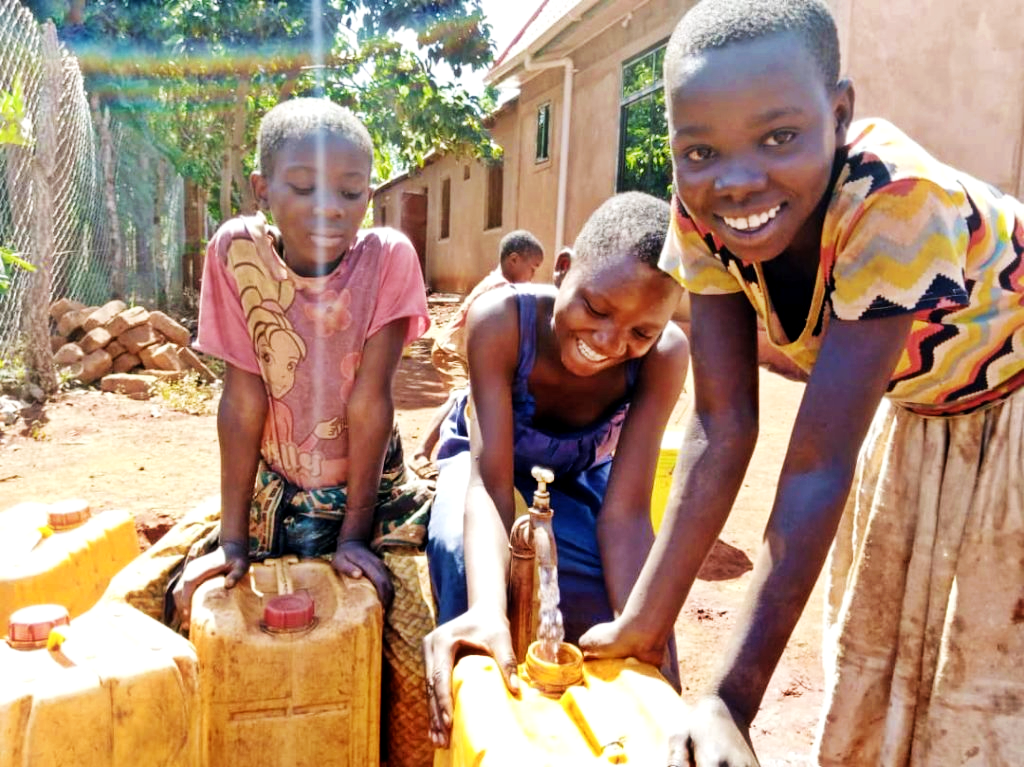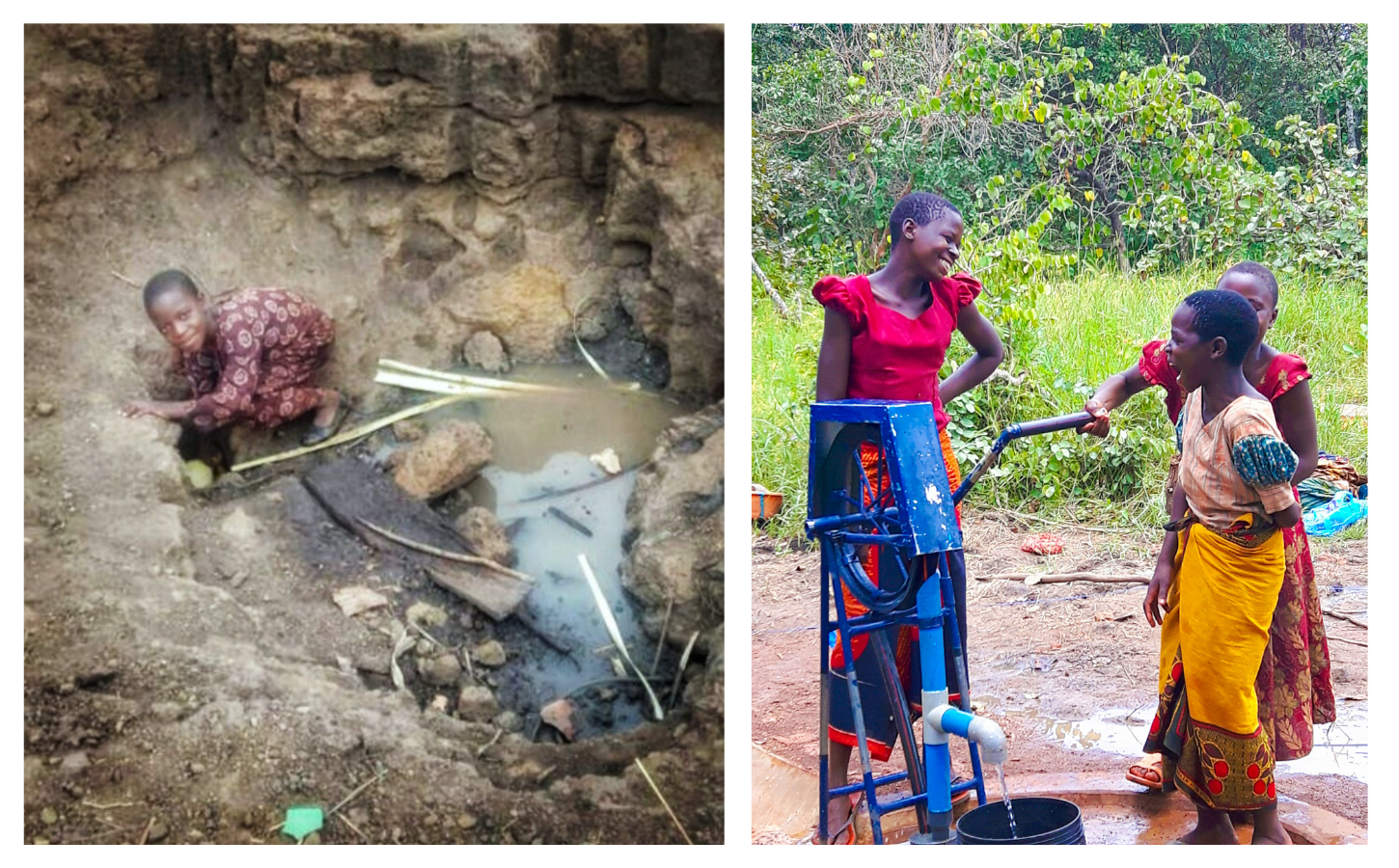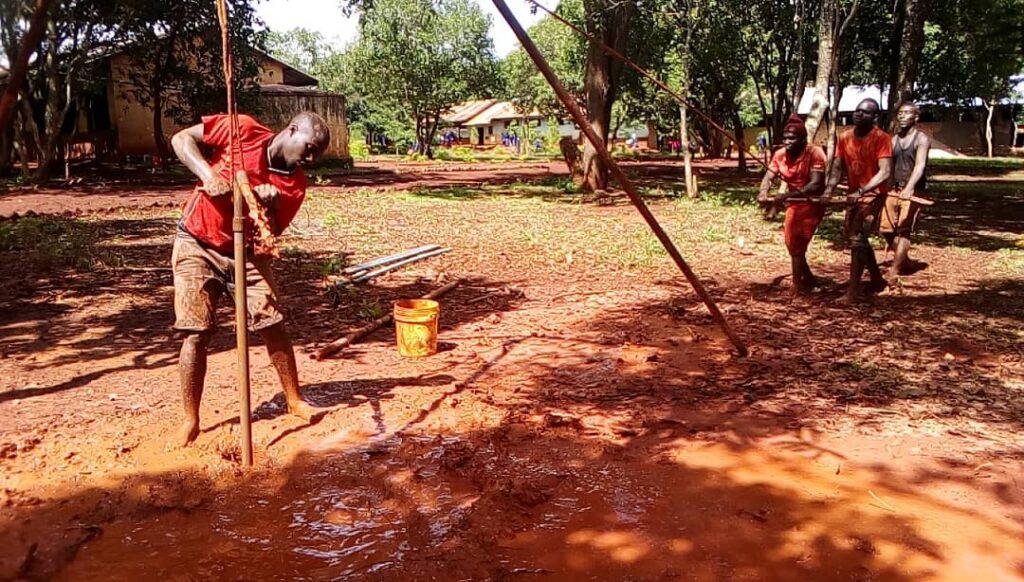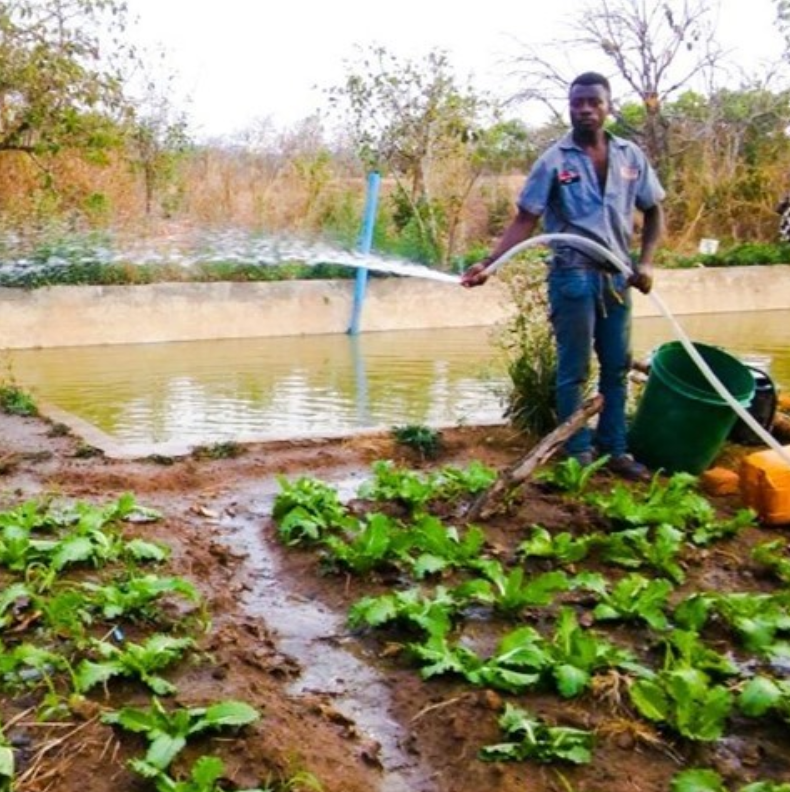Water
Water is the key to life. Yet, as climate change transforms our world, our water supply is becoming ever scarcer.

Due to droughts and poor access, finding clean and safe water to use in homes and small-scale farming is now almost impossible in Zeze and Kasulu communities. Climate change means streams and ponds in the Kigoma region are drying out, leading to desertification, and greater challenges for finding water. Sometimes, the only source of water for a community is a dirty pond, shared with animals.

For people whose access to water is already precarious, this is life threatening. Lack of water can lead to failed crops and widespread hunger. Villages such as Zeze – and throughout Tanzania – are facing critical food security.
To help communities access clean and safe water, we carry out projects, such as hand drilling, installing rope pumps, and an irrigation scheme.
Hand-drilling and rope pumps
We have discovered, adapted and developed a manual mechanical drilling of wells that works with the combination of a locally made drilling set, water and human strength!
This water pumping solution works in areas with no electricity to run motor pumps, and pumps water up from 60 metres.
The rope pump is manufactured by welders in our workshop, and we drill the new borehole by hand. This is a huge undertaking as it can take up to a week to hand-drill a borehole, depending on the ground’s geology.

Since 2016, we have installed more than 50 water pumps, reaching more than 100,000 people!
The new pumps have reduced walking hours to collect water by 90 per cent. Students and families are no longer using contaminated water from streams and ponds, which in turn reduces waterborne diseases, especially diarrhoea.
School attendance has improved, especially for girls, who are relied on to fetch the water. Sanitation and hygiene have also improved.
Almachius is the Kasulu District Development Community Officer and understands how much of a challenge water is for the Kasulu community.
He visited a number of water projects where MVG has drilled and installed pumps for community use, and told the community “We have a big problem with water and deforestation, but we are lucky that we have youth who have made an important revolution in the water sector with their hand drilled boreholes – as no doubt all of you can see! I am very impressed they have now set up a tree nursery and are supporting their community to protect the environment. I appreciate the work they have done. We should all participate to protect and develop the scheme which they have established, for ourselves and our children”.
"It was difficult to get back to school for evening classes when I had to collect water from 4km away. Often, when I got back from school, I found our water pot empty. So, I went to fetch water at Kitibitibi stream, 4km away and I spent three to four hours waiting for unsafe water in a long queue. After collecting water, cooking and eating, I was often very late going back to school for the evening sessions and very tired. I was positioned at 40th out of 129 pupils in my class for the past three years. But, now, I reached 6th position in our exams. This is because the improved food, income and water security at Zeze means I have more time to study."
Elidetha
Irrigation scheme

For people whose access to water is already precarious, this is life threatening. Lack of water can lead to failed crops and widespread hunger. Villages such as Zeze – and throughout Tanzania – are facing critical food security.
To help communities access clean and safe water, we carry out projects, such as hand drilling, installing rope pumps, and an irrigation scheme.
Empowering women and girls
Over the last decade, we have trained 1,332 local women on how to start a small business and given out 1,064 small loans to women’s groups to enable them to start them, transforming lives.
Petronia used her loan to start selling palm oil in the market. “When my 8-month-old baby started excreting blood, I was able to use the money from my business to take her to the doctor for treatment”.
Better access to water also empowers our women and girls, taking us another step closer to gender equality. It is often the duty of the women and girls to collect water for the household – even if that means a five-kilometre walk to the nearest source.
These long walks can take many hours out of their day – hours that could have been spent studying in school or earning an income for the family.
These walks can often be dangerous, with women and young girls at risk of drowning in ponds and streams, or sexual assault by men.
How can we expect to achieve an equal society when we are still faced with such fundamental challenges?
We desperately want to change this – to ensure everyone has access to water, and to empower our women and girls. Every pound of your donation will go directly to our projects, and every donation will truly be appreciated! You can donate directly to our water projects directly from our website using the button below.